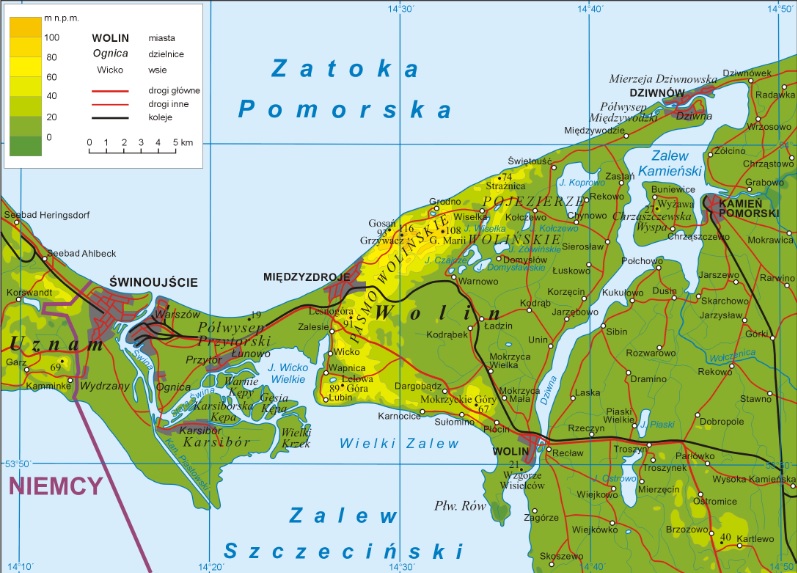Protecting habitats of the Aquatic Warbler in Rozwarowo Marshes SPA, Poland

Situation and background
The Aquatic Warbler is the only globally threatened passerine bird of mainland Europe. It is a flagship species for natural and near-natural fen mires, which provide habitats for many other rare species along with various ecosystem services to society. Habitat degradation is assumed to be the main reason for this species’ widespread decline. The ‘Pomeranian’ population of the Aquatic Warbler that breeds along the Oder/Odra river is currently listed as ‘critically endangered’.
Rozwarowo Marshes is the last stronghold of Aquatic Warblers in Pomerania, harbouring about 80% of the overall Pomeranian population. Rozwarowo Marshes are located 15 km from the Baltic Sea between Kamień Pomorski and Wolin (NW-Poland). Grzybnica river divides the peatland into two parts and flows into the Baltic Sea. Water levels are largely artificially controlled by three landowners, who manage the site mainly for winter reed cutting.
The peatland is approx. 7 km long and 3 km wide and is surrounded by agricultural land and some forest. In recent years, the addition of very nutrient-rich water through fertilisers and decomposing peat has been observed at this site. Furthermore, the artificially lowered water levels in winter lead to peat degradation and increased nutrient loads in the Grzybnica and, consequently, in Baltic coastal waters. Eutrophication has likely caused a rapid deterioration of the Aquatic Warbler’s habitat, despite the implementation of previously suitable management techniques (winter mowing). Most noteably, vegetation height on some monitoring plots has almost doubled between 2006 and 2013. In 2013, approx. 75% of the suitable Aquatic Warbler habitat from 2005 was lost. Water management is crucial for improving the conditions of the peatland as well as the adjacent coastal waters and thus forms the main target of this project.
Project activities and effects
Project Goal:
- protect and improve the environmental conditions of a coastal peatland area of great importance.
Objectives:
- The main objectives include protecting the habitats of the Aquatic Warbler- the typical fauna and flora of mesotrophic fen mires – and reducing nutrient inputs into the coastal Baltic Sea waters in the region of Kamień Pomorski by improving water management in the SPA Bagna Rozwarowskie (NW-Poland).
- Improvement of water management will lead to viable short- and mid-term effects on habitat conditions and water quality. Development of suitable strategies and a project proposal for the time beyond the project can achieve a positive mid- and long-term effect.
Activities:
- a threat analysis and eutrophication assessment
- pilot studies and activities for the reduction of eutrophication and stabilisation of water levels
- developing a strategy for mid- and long-term improvement
Long-term effects:
- Understanding the main eutrophication pathways of the current drainage system and potential for improvement; understanding vegetation development, past and current land management and land user’s interests, the legal situation and the Aquatic Warbler management requirements under changing land use
- redirection of water, water purification, and prevention of nutrient loads to the Baltic Sea
- recommendations for modified AES payments and thus incentives for more nature- and environmentally friendly land use, two workshops to discuss/agree planned measures with stakeholders, and a draft project proposal for a larger project application for the site
The project’s target group comprises of landowners, land users, water management boards, local conservation authorities and the local community.
Beneficiary
Agronatura (Poland)
Partners
- DachReed/ Sz.Smolczyński,
- Gospodarstwo Rolne Bogumiła & Alfred Smolczyński,
- Gospodarstwo Rolne K&W.Radny, Gospodarstwo Rolne I&C Piatkowscy
- RDOS in Szczecin
- Greifswald University, partner in the Greifswald Mire Centre
- OTOP
Project region
Northwestern Poland
Project duration
2016-01-01 – 2017-09-30
Budget
total project budget: € 67,400
funding BaltCF: € 60,660